All Roads Lead to Rome
I’ve been writing for as long as I can remember. Since I was young I was always telling stories, penning journals, and writing novels that would never see the light of day. Except for my mom, she always read them. I was always drawing too. So when the time came to pursue a career I chose one that would combine art and writing: art history.
When I told people I wanted to pursue art history as a career and major, I always got the same series of questions: “What are you going to do with that? What do art historians even do? Isn’t that a little limited?” among many others. They were like THAT one annoying relative at Thanksgiving who keeps asking invasive unwelcome questions.
My family, however, taught me to pay no heed. My parents, the twin pillars on whose shoulders I stand, were fiercely determined to make me believe that I could make it work despite what others said or thought. I will be forever grateful for their trust and support for me and my chosen vocation.
When the opportunity came to travel to Italy for my master’s degree, they told me not to take the easy way out and go, rather than stay home and play it safe. While the decision to travel to Italy sounds easy, for me, the quiet wallflower, late-bloomer, it sounded insane. But my mom, the brave one, helped me pack my bags and assured me that I had everything I needed to succeed. Fast-forward a couple of months and a 12-hour flight, and there I was, in Rome, with no family in the country, no Italian to my name, and thinking I had made a terrible decision.
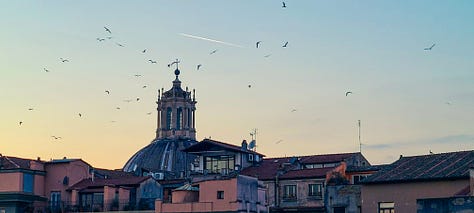
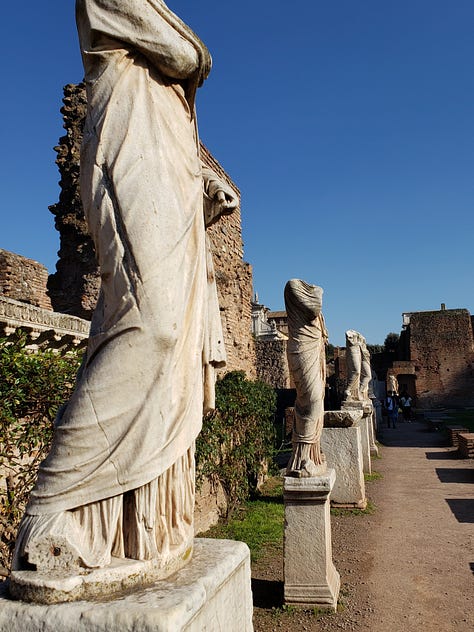
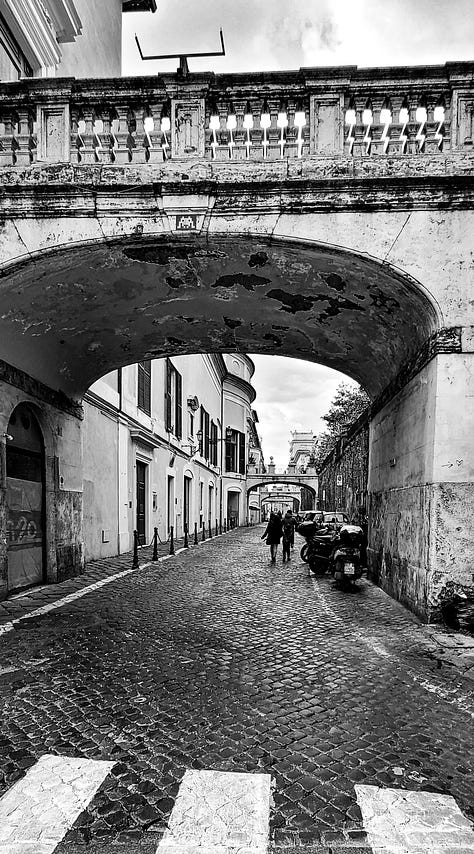
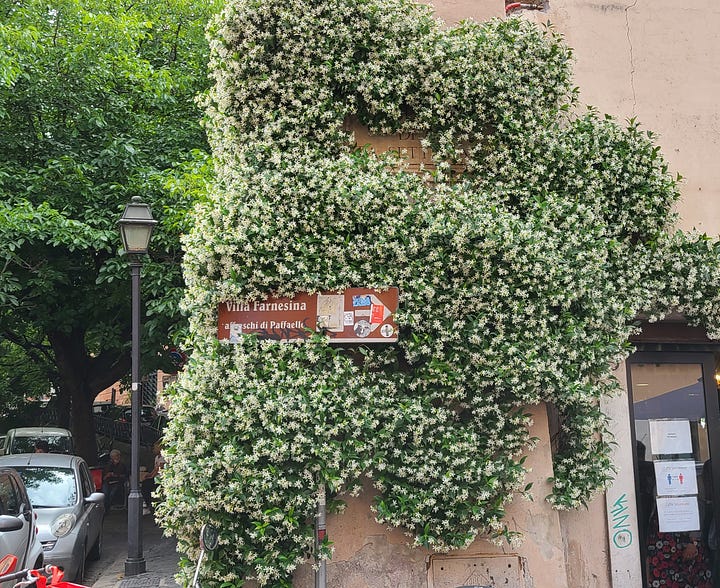
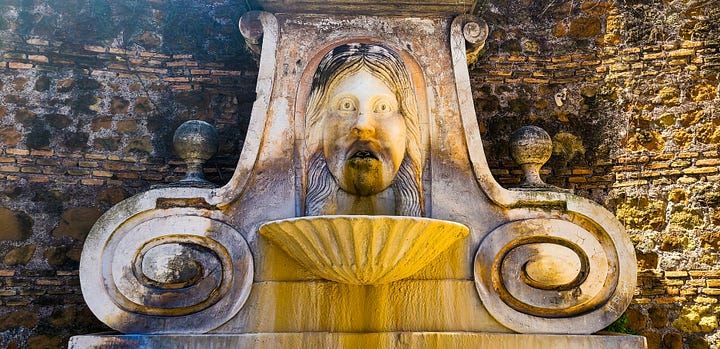
Rome: Hard to Live in, Easy to Love
The first time I traveled to Italy with my family, I was 21 and I hated Rome. The crowds, the chaos, the dirty streets. It was overwhelming. I preferred Florence with its cooler air, quiet, pleasant streets, and Renaissance architecture. A couple of years later, Rome once again immediately greeted me with its colorful personality where light signals are suggestions, cab drivers talk with their hands while driving, pedestrians are immortal, and sirens wail at all hours of the day (and night). Rome was chaos incarnate. Even its buildings couldn’t decide what they were: a pastiche of layers, history, medieval architecture, and ancient remnants peeking out.
I was also very conscious of the fact that I had zero Italian under my belt, but I thought being fluent in Spanish might help. It did, and it didn’t. We were assured in our classes that while Italian lessons would not be offered, the “city would be our teacher.” And a tough teacher it was. I vividly remember trying to order a couple of slices of pizza al taglio, literally “by the slice” at La Renella—a tiny pizza place in the bustling vibrant Trastevere where you can buy slices of pizza per weight.
I remember mumbling in poor Italian that I wanted a few slices to go and the woman looked up at me and said in stern English “That’s not how you say it, it’s ‘posso avere due fette di pizza rossa da portare.’” She gestured for me to repeat it. In front of everyone in the tiny, cramped, one-hallway space that was the restaurant.
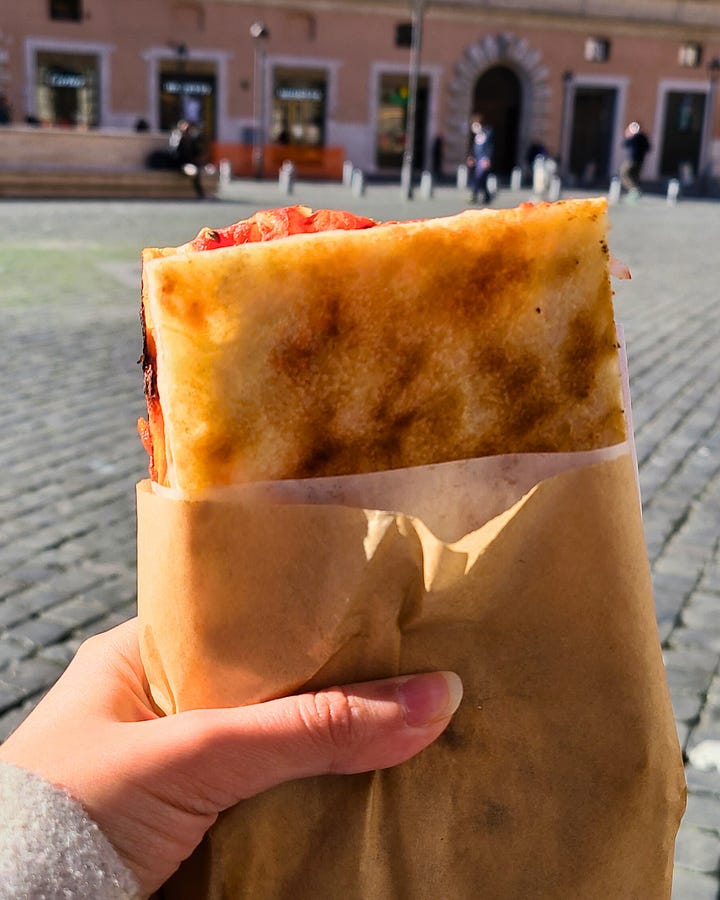
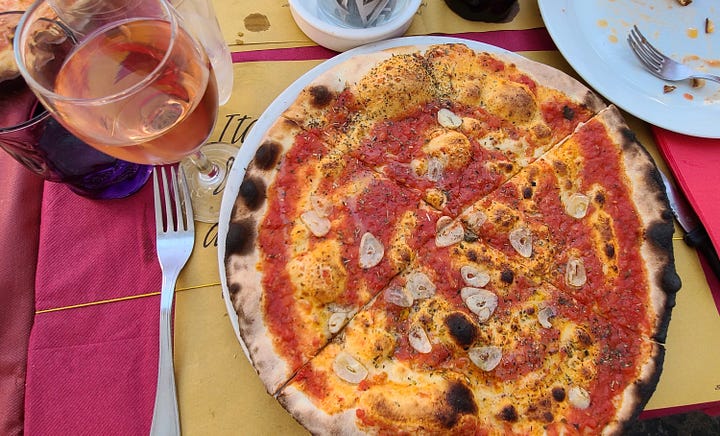
Trying not to cry, I stuttered through it. She nodded in encouragement and had me repeat it three times while prepping my order. When I paid she said “You don’t talk, you don’t eat, good job” and left. I was stunned. I took my pizza and left. But the lesson stuck and soon, the phrases that were stored in my long-term memory were those dictated by the Romans. And in their own intrusive, brusque, wonderful way, I realized they were helping me.
Understanding Sabrina
This is where I began to crawl out of my shell. I felt like Julia Ormond’s Sabrina, finding her courage and style in Paris. Soon, Rome began to sneak up on me. As I continued my studies, I began to see the city for what it was: a beautiful, unique place that was irrevocably, unapologetically itself. The buses were never on time especially when you needed them to be, the carbon monoxide alarm was greeted con calma, and a soft suggestion of “opening the windows,” local train stations that garbled Italian over the speakers and changed the platforms without advising you (thank you Pompeii Circumvesuviana). My fifth-floor apartment had no elevator, the sirens and the tram shook my bedroom, and people were brusque yet warm, difficult yet accommodating, Rome was a great contradiction. The great beauty. And it taught me to be myself — unapologetically. I am who I am, and I like what I like. What I found was a great freedom.
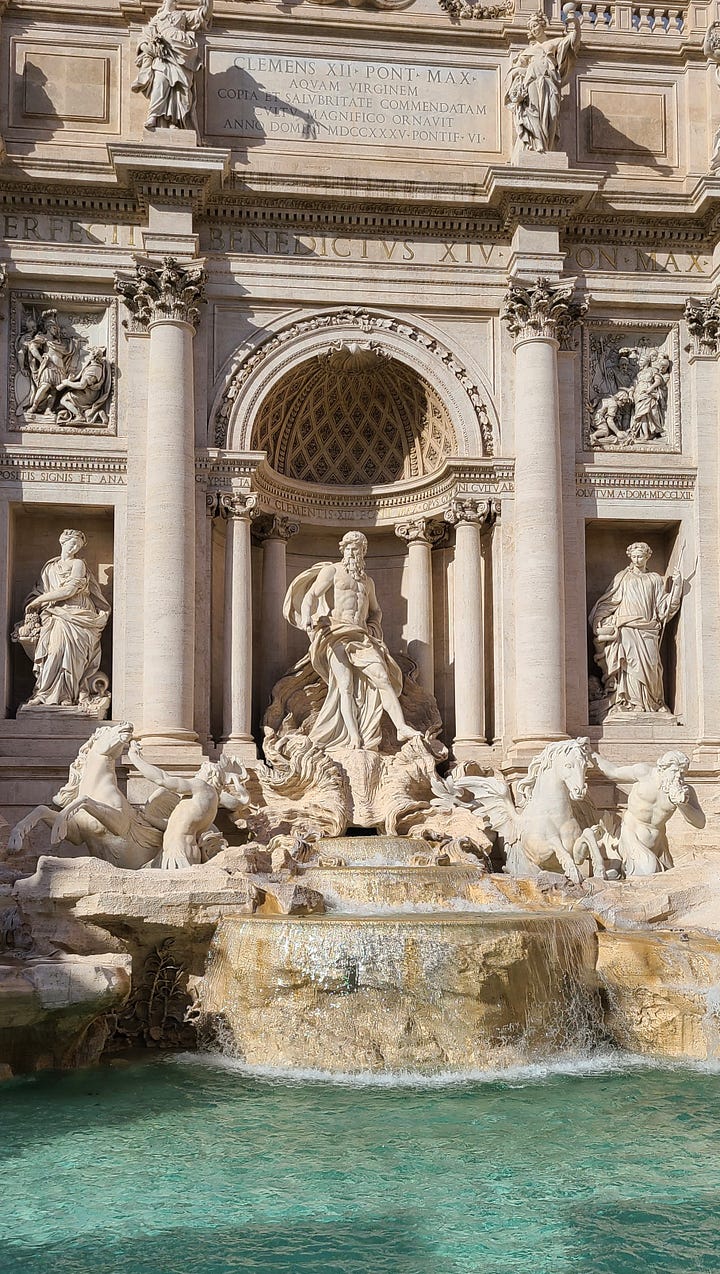

All of these situations forced me to speak, to ask, to talk, to run to get anything done. There was no hand-holding, just me and my roommates, now my closest friends, stumbling through Italy trying to make it from one monument to the next for research, a paper, a project, etc. There was no room for the quiet wallflower here.
Another gift? The walking, the stillness, and the slow living. For the first time in my life, I felt like I had time. My chronic backache disappeared, and the heaviness in my gut was cured by eating pasta every day and taking a passeggiata and a classic evening aperitivo al fresco. My days were filled with long study hours, museums, and trips to fantastic palazzos, exploring every nook and cranny. It felt like home, and I realized I had fallen in love with the city. Living in a foreign country is a gift, but it’s not easy, even as a student, even with a support system. Because in the end, the day-by-day, is all up to you. No one can navigate the streets for you, no one can learn the language for you, it is all up to you.
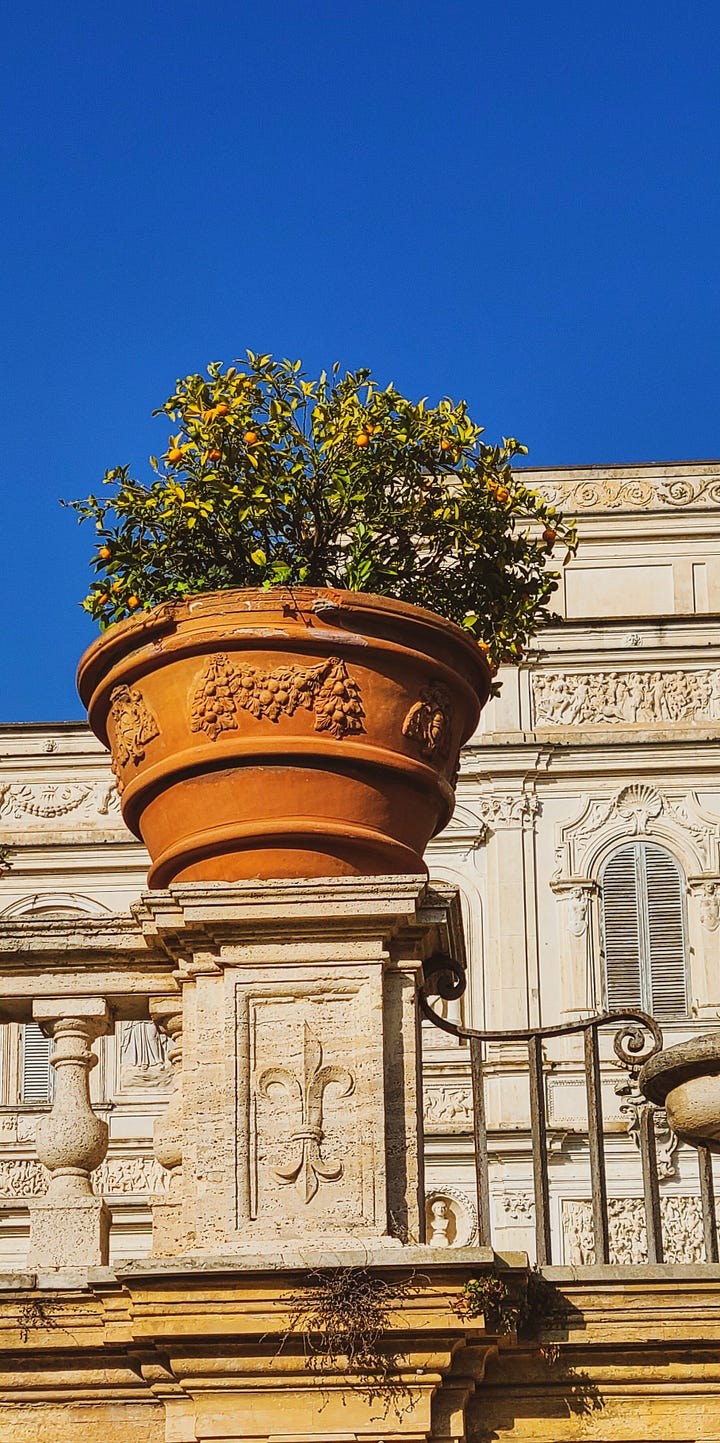
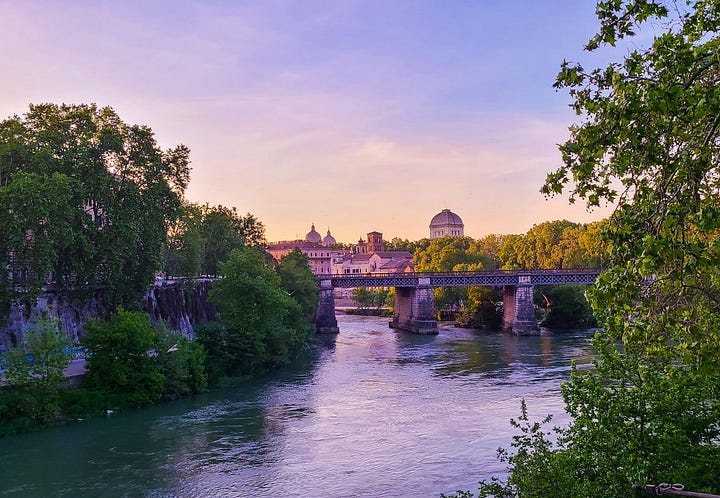
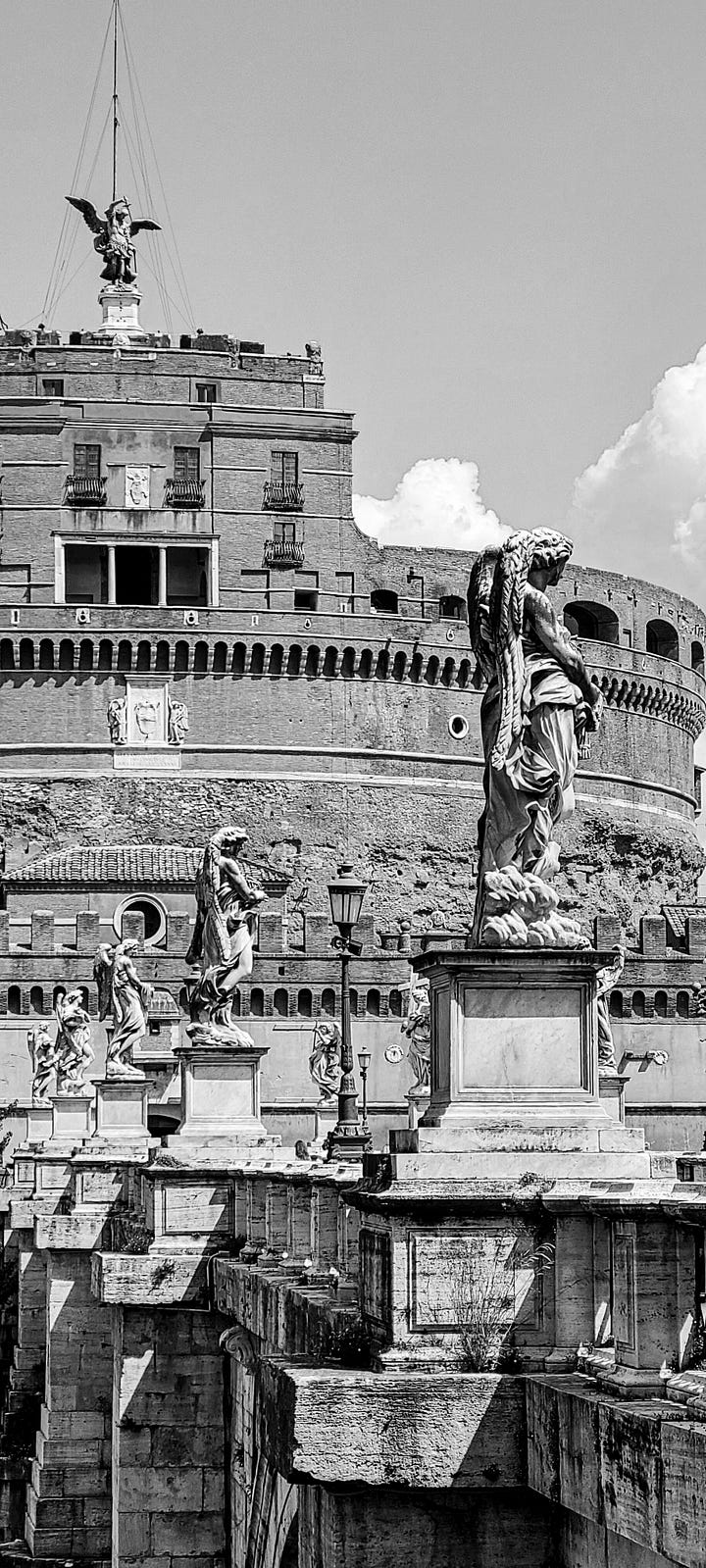
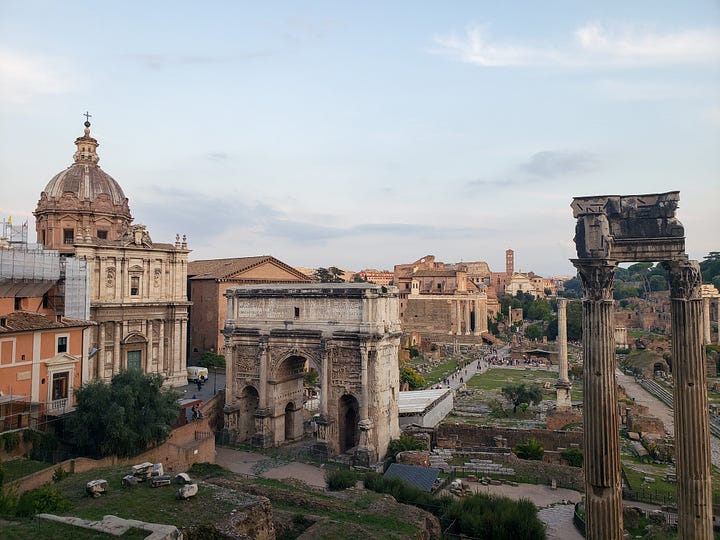
When the program ended and we all went our separate ways, many people back home were floored by who I had become. I had changed so much: I made eye contact, stood up for myself, laughed loudly, and ate with gusto (more than usual). Rome made me brave. And I see it as my second home. Soon after I started a museum job where I remained for two years until academia began calling my name again. Through it all, I discovered freelance writing and saw it as a way to tell my stories and reconnect with my time in Rome. Thus, this newsletter and my little corner of the internet was born.
I felt like I could finally fully, intimately understand the line Sabrina recites by Gertrude Stein in the film: “America is my country, and Paris is my hometown.” I never heard of a sentiment that so perfectly describes my love for my home country and Rome, where I had left my heart.




